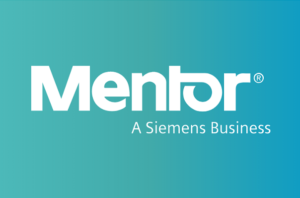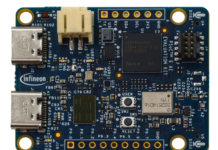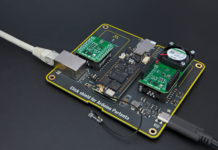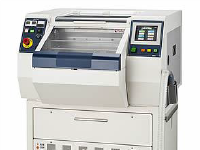
Highlights:
- Mentor’s addition of OpenACC and OpenMP parallel computing directives to the GNU FORTRAN (GFortran) compiler and its CodeBench GFortran lite for AMD enhances the world’s most widely used compiler toolchain with the ability to generate high performance code for AMD Graphics Core Next (GCN) architectures.
- Mentor’s expertise enables programmers to develop applications for the AMD GCN3 that achieve supercomputer performance without superhuman effort.
- GFortran lite is the only open source no-cost solution that supports multiple targets, ideal for such high performance applications as machine learning, vision, oil and gas exploration, seismic analysis, video, signal processing, and image processing.
Mentor, a Siemens business, announced the Sourcery CodeBench GFortran embedded compiler targeted to AMD Graphics Core Next (GCN) architectures for high performance computing applications. The GFortran compiler is the industry’s only open source Fortran supporting OpenACC and OpenMP (Open Multi-Processing) parallel computing directives. Mentor is a leading compiler vendor in the embedded software industry with extensive expertise in Open ACC and OpenMP standards, GNU and LLVM compiling technology, and the architectures of the most widely-used commercial silicon architectures.
“It’s great to see the GNU OpenMP and OpenACC tool chains with native GCN compilation coming to the ROCm GPU computing software platform,” stated Mark Hirsch, CVP, AMD Radeon Technology Group. “Mentor is helping to drive another level of choice for HPC programmers on Radeon Instinct Hardware.”
The OpenACC standard is designed to simplify programming of heterogeneous parallel CPU and GPU systems, and OpenMP is an application programming interface (API) for shared memory multiprocessing programming in C, C++, and Fortran. AMD customers developing high performance computing (HPC) applications such as machine learning, vision, oil and gas exploration, seismic analysis, video, signal processing, and image processing require a high performance compiler to achieve the performance required to make their applications useful. Based on Mentor’s Sourcery CodeBench technology, a powerful toolset to develop and optimize software for a broad range of embedded targets and domains, the GFortran compiler will mitigate risk and achieve optimized performance success.
“We are delighted to see the rapidly growing adoption of AMD’s Radeon Instinct Hardware for HPC based on our advancement of OpenACC and OpenMP for the embedded programming community,” stated Glenn Perry, vice president and general manager, Mentor Embedded Systems Division. “When combined with the ROCm software platform, this provides an extremely powerful solution for the latest demands in AI, machine learning and general high performance computing.”
The GFortran Compiler is the most widely-targeted and most widely-used
Fortran compiler in the world. As such, it is a robust compiler ideal for software developers and semiconductor vendors who need to develop high performance applications targeting embedded or heterogeneous architectures.
Key features of the GFortran compiler for the AMD GNC include:
- The ability, using a few simple directives, to specify the vector and parallel characteristics of loops, enabling high performance code generation.
- The ability to write highly portable programs that transparently adapt to new architectures.
- The ability to use the same application and the same compiler across a wide range of architectures, given GNU’s wide commercial use.
Dr. Randy Allen of Mentor will be discussing the CodeBench GFortran lite compiler for AMD at SC 17 in Denver. His talk “The Challenges Faced by OpenACC Compilers” will be presented at 1:00 pm on November 13 at the Fourth Workshop on Accelerator Programming Using Directives.


















